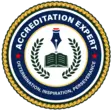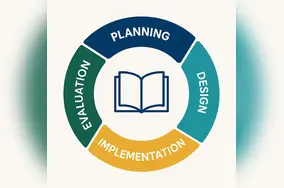
Introduction
Launching a new educational program is one of the most significant investments an institution can make. Whether you are building a vocational diploma, a bachelor’s degree, or a graduate program, success depends on more than just strong academics. Programs must also satisfy state licensing agencies, accrediting bodies, and today’s student and employer expectations.
That raises the critical question: How much does it actually cost to develop an educational program?
The answer depends on scope, accreditation requirements, technology needs, and the resources available to your institution. At Accreditation Expert Consulting (AEC), we specialize in designing regulator-ready, accreditation-aligned programs, helping institutions avoid costly missteps and achieve approval on the first submission.
What Goes into Educational Program Development Costs?
Developing an educational program is more than writing course syllabi. Costs typically fall into these categories:
- Faculty and Subject Matter Experts (SMEs): Institutions must engage qualified experts to define program-level outcomes, develop course content, and ensure academic rigor.
- Curriculum Design: Building program learning outcomes (PLOs), course-level outcomes (CLOs), assessments, rubrics, and weekly schedules.
- Compliance and Accreditation Alignment: Mapping every course and outcome to state regulations and accreditor standards to ensure approval.
- Technology Integration: Packaging courses for Learning Management Systems (Canvas, Moodle, Blackboard, Populi), ensuring accessibility (WCAG 2.2), and adding digital enhancements like AI and VR where required.
Each of these steps requires expertise and resources, which directly influence the total cost.

Typical Cost Considerations for Program Development
Program development costs vary widely depending on the type, size, and format of delivery for the program. At Accreditation Expert Consulting (AEC), we customize every proposal after a careful evaluation of your institution’s needs.
Certificate and Diploma Programs
These short-cycle programs often include 4–6 courses, sometimes with labs or externships. They require a streamlined design, but still involve heavy compliance mapping to meet the expectations of regulators and accreditors.
Associate Degrees
Two-year programs typically involve 20–25 courses, with sequencing of general education, electives, and major requirements. Regulatory approval and accreditation alignment are essential.
Bachelor’s Programs
Four-year programs may require 30–40 courses, general education frameworks, electives, and layered compliance exhibits. The scope and complexity make these one of the most detailed program builds.
Master’s & PhD Programs
Graduate programs involve advanced curriculum design, research components, and rigorous accreditation documentation. Hybrid and online delivery often add another layer of compliance and technology integration.
Add-On Considerations
- LMS packaging and integration.
- Accessibility compliance (WCAG 2.2).
- Emerging technologies like AI, VR, and AR.
- State and accreditor exhibits that require submission-ready documentation.
Because every institution has unique goals, timelines, and compliance needs, we don’t use one-size-fits-all pricing. Instead, we begin with a 30-minute consultation to understand your vision and deliver a custom proposal that outlines the scope, deliverables, and investment options.

Factors That Influence Program Costs
Beyond program type, several variables can impact costs significantly:
- Size and Scope: Larger programs with more courses naturally cost more.
- Accreditation or State Licensing Requirements: Programs regulated by agencies like DEAC, BPPE, THECB, or COE often require additional documentation.
- Lab/Externship Components: Hands-on training in healthcare, trades, or technical fields increases both development and compliance costs.
- Delivery Mode: Online and hybrid programs require LMS packaging, while on-campus programs may need lab or classroom design.
- Timeframe: Accelerated timelines can increase costs due to higher demands from SMEs and consultants.
ROI of Investing in Professional Program Development
While the costs may seem substantial, professional curriculum development is an investment with measurable returns:
- Faster Approvals: Regulator-ready curriculum reduces the risk of denials or lengthy resubmissions.
- Improved Outcomes: Well-designed programs produce stronger student results and higher retention rates.
- Cost Savings: Avoiding errors saves tens of thousands in rework and lost enrollment cycles.
- Competitive Edge: Future-ready programs with stackable credentials and flexible delivery attract more students and employers.
In short, the upfront investment in compliance-focused design pays for itself in speed, credibility, and sustainability.

Why Work with Accreditation Expert Consulting?
AEC has over 19 years of experience supporting more than 200 institutions across the U.S., Canada, and internationally. We bring a unique combination of compliance expertise, instructional design, and technology integration.
Our differentiators include:
- Proven success in designing a regulator-ready curriculum on the first submission.
- Cross-sector expertise in universities, vocational schools, online providers, and corporate training.
- End-to-end solutions: from curriculum architecture to LMS integration and accreditation exhibits.
Case Studies
Case Study 1: Healthcare Diploma Program
A private healthcare school sought approval for a new diploma program. AEC designed full syllabi, mapped outcomes to accreditor standards, and prepared submission-ready exhibits. The program achieved state approval on its first submission, and enrollment doubled in the first year.
Case Study 2: Online Master’s Program
A university required DEAC accreditation for a fully online graduate program. AEC developed courses in SCORM-compliant formats, aligned every CLO/PLO with DEAC standards, and prepared the SER. The program received full accreditation without conditions.
FAQs
How much does it cost to develop a certificate program?
The investment depends on multiple factors such as the number of courses, compliance requirements, and whether labs or externships are involved. Because every institution’s needs are unique, AEC begins with a 30-minute consultation to evaluate scope and provide a tailored proposal
What factors influence the cost of developing a degree?
Major cost drivers include the number of courses, lab or externship requirements, accreditation and state licensing standards, delivery mode (online, hybrid, or campus-based), and the level of supporting documentation needed.
Does LMS packaging add to the cost?
Each Learning Management System (LMS), such as Canvas, Moodle, Blackboard, and Populi, has its own technical requirements. LMS integration is available as a dedicated service, and our team can either provide packaged courses or build directly within your Learning Management System (LMS) platform.
Who pays for SME contributions?
Subject Matter Experts (SMEs) are typically engaged by the institution, either from internal faculty or external professionals. Their involvement is factored into the overall development plan.
How long does it take to develop a program?
Timelines vary depending on program type and compliance requirements. Certificate programs may be completed in a shorter timeframe, while degree programs often require several months. Final schedules are influenced by accreditor deadlines, subject matter expert availability, and the chosen delivery format.
What is included in curriculum development services?
AEC’s services include program architecture (PLOs and CLOs), syllabi, rubrics, assessments, weekly schedules, LMS-ready packaging, compliance mapping, and submission-ready exhibits for state and accreditor review.
Can AEC help with both state approval and accreditation?
Yes. AEC specializes in both state-level licensing (such as BPPE, THECB, MDHE) and national accreditation (DEAC, ACCET, COE, ABHES). We build a curriculum that satisfies regulators and accreditors simultaneously, ensuring smoother approvals and faster institutional growth.
Can you design fully online programs?
Absolutely. AEC designs fully online programs that are SCORM/xAPI compliant, packaged for major LMS platforms, and aligned with both accreditation and accessibility standards. We ensure that online delivery meets the same rigor as on-campus programs.
How do you ensure compliance in hybrid or asynchronous delivery?
We map every course element, from instructional hours to assessments, against regulatory definitions of credit and clock hours. Whether your program is hybrid, synchronous, or asynchronous, our designs meet accreditation standards while supporting flexibility for students.
Conclusion
Developing an educational program is a major investment, but one that directly shapes institutional credibility, student outcomes, and long-term success. Costs vary widely based on program type, scope, and compliance requirements, but the ROI is clear when programs are built right the first time.
At Accreditation Expert Consulting, we provide unbiased, fact-based research and expertise to ensure your programs are regulator-ready, accreditation-aligned, and built for the future.
Schedule your 30-minute consultation today.
📧 info@AccreditationXpert.com
📞 1-833-232-1400
🌐 www.AccreditationXpert.com (That’s X-P-E-R-T)



